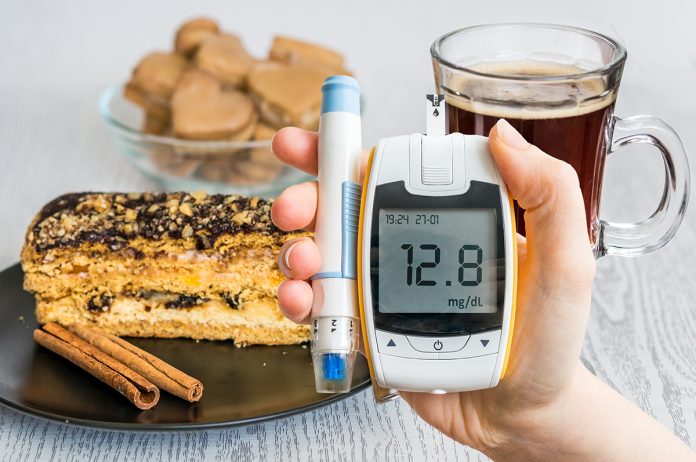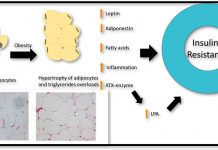Prof Dr Freimut Schliess, Director of Science & Innovation at the Profil Institut für Stoffwechselforschung GmbH shares his views on data-based solutions for diabetes
By way of background, diabetes today is a huge and multidimensional challenge for global societies. Many patients don’t reach their treatment goals. According to the UK National Diabetes Audit data 2016-2017, only 30% of people with Type 1 diabetes (T1D) and 67% of people with Type 2 diabetes (T2D) achieved a HbA1c target of not more than 58 mmol/l (7.5%).
When considering also blood pressure and cholesterol targets, these figures dropped to 19% and 41% respectively. The good news is that diabetes leaves a huge space for innovation – due to the modifiability of risk factors, the potential reversibility of the disease and the outstanding role of the patient’s self-management.
Diabetes – a data management disease
Diabetes was referred to as a data management disease. Informing the patient’s treatment decisions by a (digital) processing of real-time and real-life metabolic and behavioural data is the procedural core component of contemporary diabetes therapy and leads to the generation of a vast amount of data – leaving exciting opportunities for digital solutions in personalised and integrated diabetes care.
The digital processing of real-life data also has an enormous potential to fully exploit the preventability and reversibility of T2D. Moreover, in a collaboration between the JDRF and IBM big databases are established following the ambition to phenotype T1D classes, to predict the onset of T1D and to model T1D progression.
Digital biomarkers in clinical trials
The sensor-based collection of real-life data for the assessment of digital biomarkers in diabetes trials is going to greatly improve the external validity of clinical trial outcomes. Digital biomarkers will help to model the impact of treatment-effect-modifiers on drug efficiency and will include endpoints relevant for coping with everyday life. Thereby, digital biomarkers will help to narrow the well-known discrepancy between drug efficacy found in well-controlled clinical trials and drug effectiveness, observed in everyday clinical practice (E2E gap).
Innovation barriers – cross-sectional topics
Digital health technologies combined with the increasing availability of user-generated databases create huge opportunities for people-centred solutions improving health, health-related quality of life and health economic sustainability – and a strong momentum for societal and entrepreneurial investment in digital diabetes care. Focusing on a highly modifiable medical indication across the continuum, from early disease interception to disease management, could be attractive to set up a paradigm example for generating an impact that is really tangible for societies. At the same time, it seems appropriate to drive forward a cross-sectional approach to remove innovation barriers to digital health technologies.
Cross-sectional topics best addressed in an open and collaborative innovation culture integrating actors from R&D, education and business creation include the following:
Co-creation: The involvement of users and other stakeholders early in the design and evaluation of digital solutions. Joint decision-making power along the lines of marketing authorisation, added value definition and eligibility for reimbursement.
Data: The debate is on ownership, availability, integrity and the remuneration of data sharing. Data management policies and systems securing interoperability, privacy and cyber-resilience are considered to be of the utmost importance.
Regulation: Quality assurance and regulatory requirements for lifestyle and medical apps need to be clarified. Also, the exploitation of real-world data repositories for marketing authorisation and informing personalised treatment decisions is a key concern.
In perspective: closing the loop towards an integrated personalised diabetes management
Digital diabetes technologies available today, such as devices for a real-time continuous and flash glucose monitoring (rtCGM, FGM) and automated insulin delivery (AID, artificial pancreas systems) can be considered as transition technologies. Digital tools are predicted to gradually become integrated as part of a more interconnected holistic ecosystem of digital health and social care.
Here, a comprehensive monitoring of metabolic signatures and parameters reflecting patterns of everyday behaviour will produce a huge amount of real-world data which could be processed by self-learning control algorithms. The outcome will trigger an adjustment of therapies, social interventions and behavioural patterns which again will provide feedback in terms of the captured parameters.
Promoting digital innovation for gradually optimising diabetes management in a personalised way will realise the twin objective of improving everyday metabolic control and re–adapting behavioural habits to prolong the patient’s independence and prevent the development of frailty & disability, as well as comorbid conditions.
Please note: this is a commercial profile
Prof Dr Freimut Schliess
Director, Science & Innovation
Profil Institut für Stoffwechselforschung GmbH
Tel +49 2131 5018 225
Editor's Recommended Articles
-
Must Read >> Keeping watch: The story of a diabetes service dog














